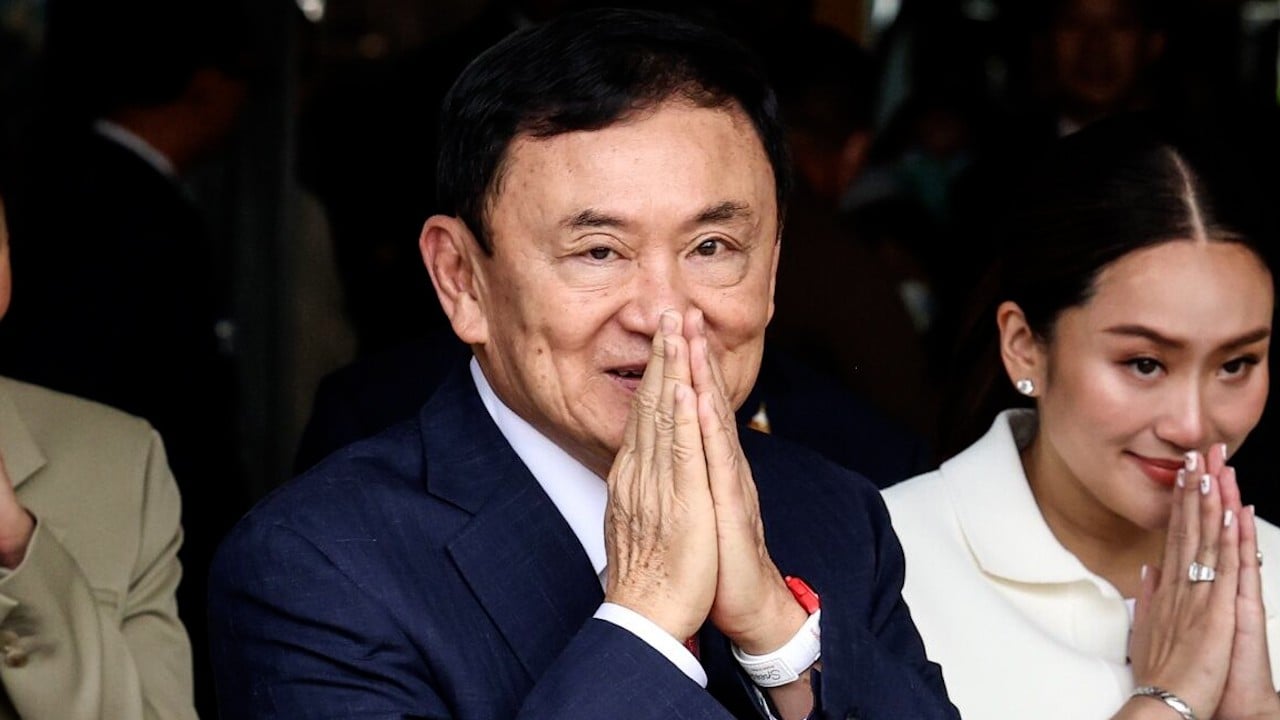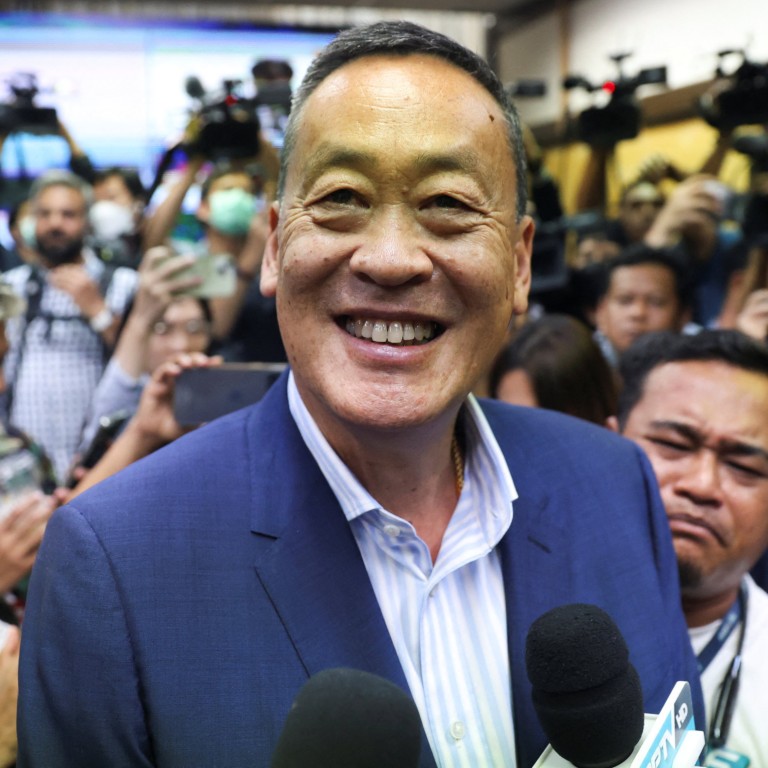
Thai parliament elects Srettha Thavisin as PM hours after Thaksin Shinawatra returns from exile
- In a parliamentary vote on Tuesday afternoon, Srettha passed the threshold of 375 votes needed to become premier and form the next government.
- Srettha’s endorsement by lawmakers promises to end a deadlock which has gripped the country since the May election
Property mogul Srettha Thavisin will be Thailand’s 30th prime minister after lawmakers on Tuesday voted him into office, in a day of high political drama which also saw former leader Thaksin Shinawatra return to the kingdom after a 15-year exile and whisked straight to jail to serve an eight-year sentence.
Srettha’s endorsement in parliament promises to end a deadlock which has gripped the country since the pro-democracy Move Forward Party won the May election and formed a coalition that included Pheu Thai, but was then blocked from power by the conservative establishment.
The events pushed Thailand’s most radical party into opposition and have led to a once-unthinkable alliance between the military and the Shinawatra political vehicle, Pheu Thai.
In the parliamentary vote on Tuesday afternoon, Pheu Thai’s Srettha passed the threshold of 375 votes needed to become prime minister and form the next government.
Earlier in the day, 74-year-old Thaksin, beloved by the rural poor but reviled by the royalist establishment, arrived by private jet at the VIP terminal at Bangkok’s Don Mueang airport, landing to a carnival of red – the colour of his rural support base – as thousands massed to greet him.
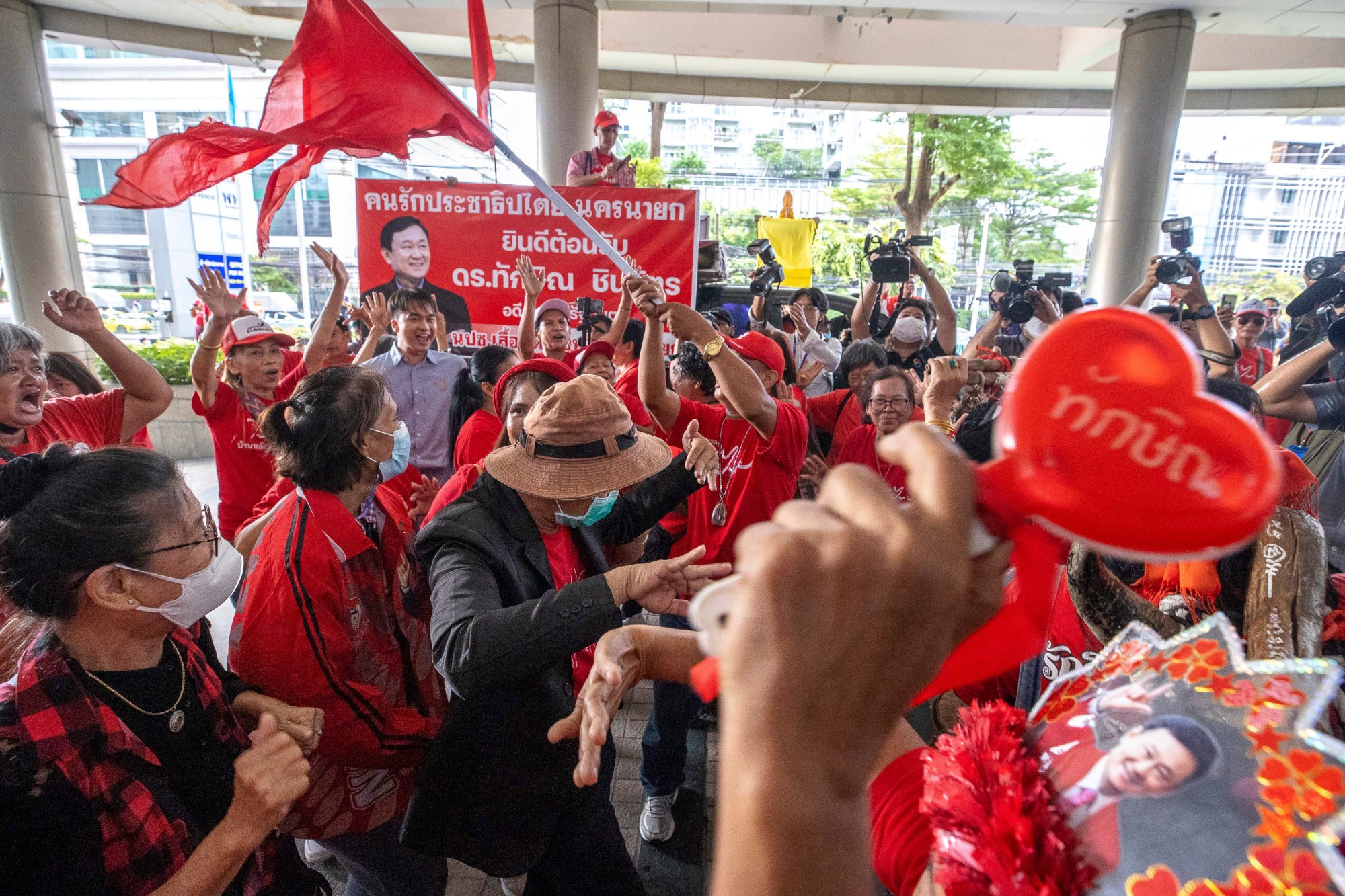
The sentence covers three different cases heard in absentia for abuse of power and malfeasance, illegally ordering a state-run bank to issue a foreign loan, and illegally holding shares via nominees, the Supreme Court said in a statement.
But he can submit a petition for a royal pardon in the coming days, an outcome experts deemed necessary to end the two-decade political rift between the Shinawatra faction and the royalist military elite.
Thaksin publicly insists he is returning only to see his grandchildren and has no interest in politics.
The decision by Pheu Thai – the once standard-bearing party for Thai democracy – to join a coalition of 11 parties, including groups affiliated with the generals who have hounded Shinwatra parties from power with two coups in two decades, has upset some supporters and party insiders, as well as backers of Move Forward.
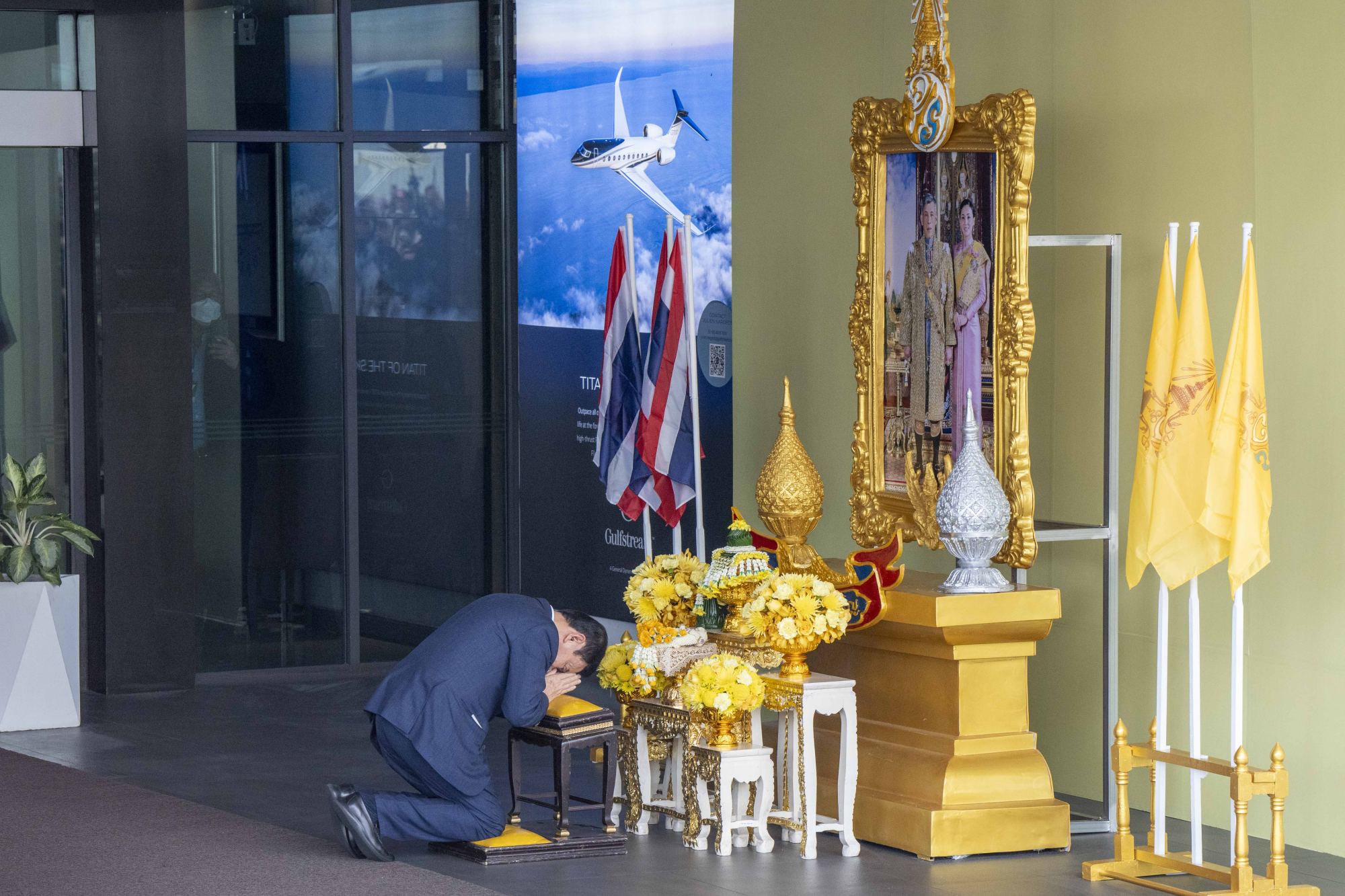
Accusations abound of a political betrayal which serves the Shinawatra family power base and allows conservative hardliners a route back to power, despite their poor election showing.
Others say it is time for reconciliation after years of political violence and recrimination which has hemmed in the economy.
Ahead of Thaksin’s return, Maiulee Sawathasai, the head of the red-shirt movement in the historic city of Ayutthaya, told This Week in Asia the nation had a chance to “start again”.
“Without Thaksin, the country has gone backwards, the economy has collapsed … the new government will come from the same group as before and the country can move on,” she said. “We are all Thais, it is time to put the past behind us.”
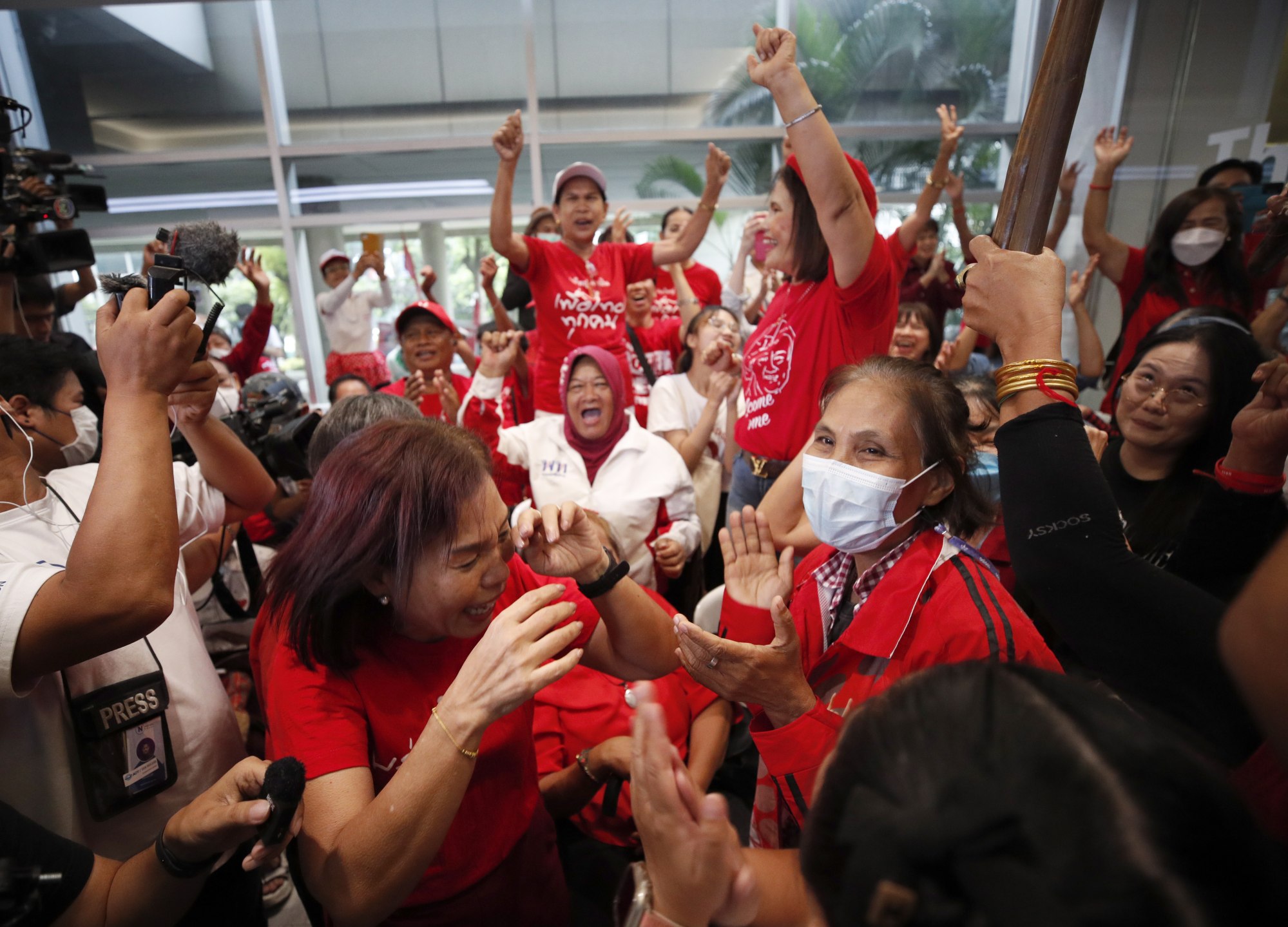
Srettha, 61, is a real estate tycoon who turned to frontline politics relatively late in life.
He had earlier explained that the split with Move Forward and the alliance with parties linked to the so-called “two uncles” – former generals Prayuth Chan-ocha and Prawit Wongsuwon – as a necessary evil to reboot the country.
Pheu Thai is hoping its economic plans, which hark back to the so-called Thaksinomics handout and subsidy era of the early 2000s, will drive growth, uplift the poor and ultimately lead voters to forgive its ideological bed-hopping.
The omens among loyalists are good. After a long night waiting on the pavement near the airport for Thaksin to return, Pranee Tamsee, 72, said her loyalty to the Shinawatra brand was unconditional.
“He raised the quality of life of grass-roots people. If you’re not poor, you won’t understand what he means to us,” she said. “Even if Thaksin leads me into a hole I will follow.”
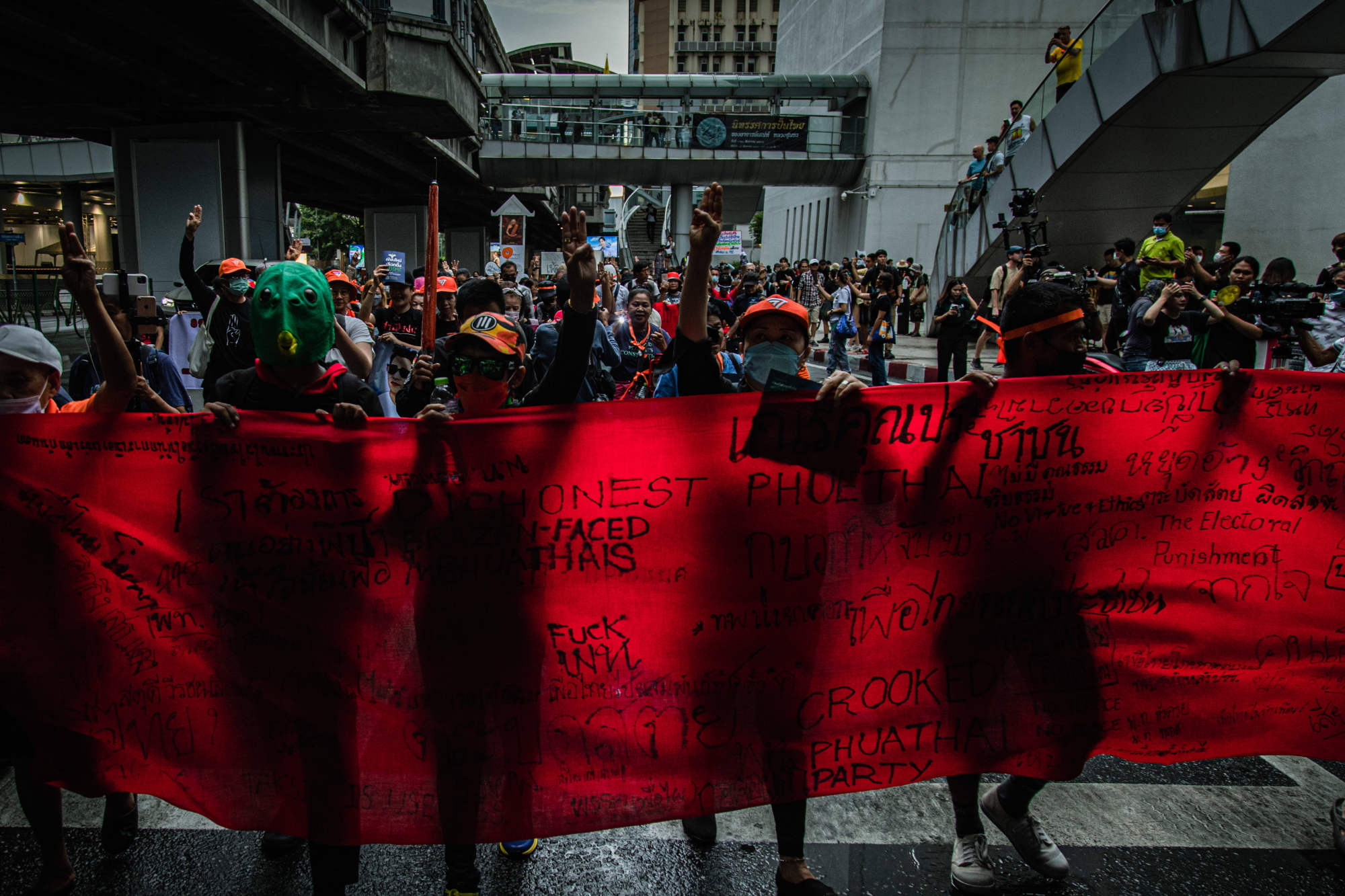
Thailand’s military has not allowed democratic governments to settle in the kingdom, carrying out a coup on average every seven years since 1932 when absolutism was replaced by a constitutional monarchy.
Thaksin remains the only civilian prime minister to last a full term, winning two landslide elections in 2001 and 2005.
His government was toppled by the army a year later, sparking the prolonged crisis from which the country has yet to emerge.
Additional reporting by Reuters, AFP

